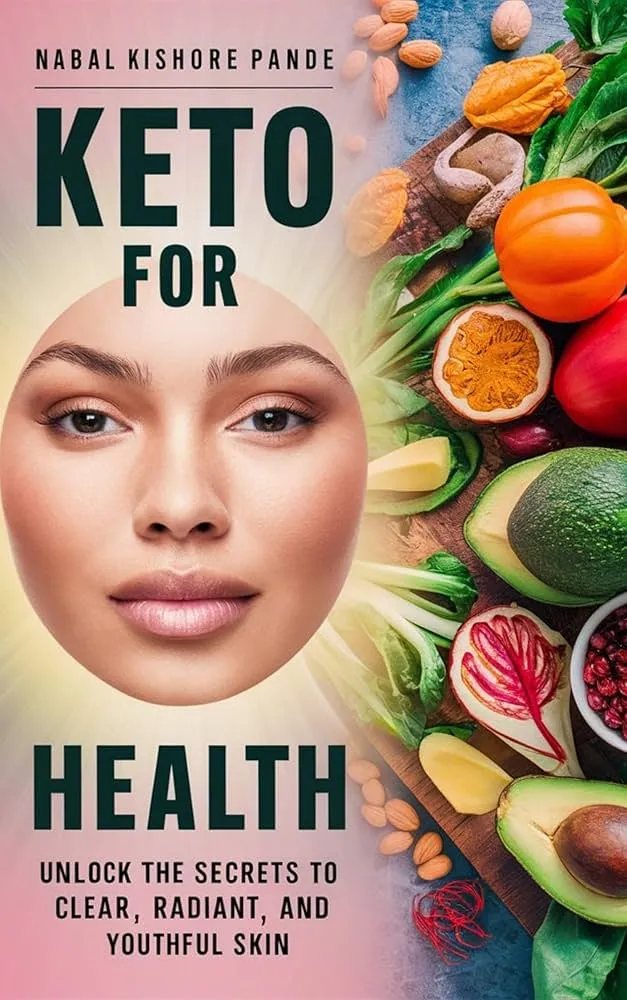Unlocking the Secrets of Keto: How It Can Transform Your Skin
The ketogenic diet, or keto diet, has gained immense popularity in recent years for its potential health benefits, including weight loss, improved energy levels, and better mental clarity. But did you know that the keto diet can also have a transformative effect on your skin? In this article, we will explore the connection between the keto diet and skin health, and how adopting a ketogenic lifestyle can help you achieve glowing, radiant skin.
What is the keto diet?
The ketogenic diet is a high-fat, low-carbohydrate diet that has been used for decades to treat epilepsy in children. The diet is designed to induce a state of ketosis, where the body burns fat for fuel instead of carbohydrates. By drastically reducing your carbohydrate intake and increasing your consumption of healthy fats, the keto diet shifts your metabolism into a fat-burning mode, leading to rapid weight loss and other health benefits.
How Does the keto diet Affect Skin Health?
The keto diet can have a profound impact on skin health for several reasons. First and foremost, the keto diet is anti-inflammatory, which can help reduce redness, swelling, and other signs of inflammation in the skin. Inflammation is a common factor in many skin conditions, including acne, eczema, and psoriasis, so reducing inflammation through diet can lead to clearer, healthier skin.
In addition, the keto diet is rich in antioxidants, which help protect the skin from damage caused by free radicals. Free radicals are unstable molecules that can wreak havoc on the skin, leading to premature aging, wrinkles, and other skin issues. By eating a diet high in antioxidant-rich foods like berries, leafy greens, and nuts, you can help protect your skin from oxidative stress and maintain a youthful, radiant complexion.
Furthermore, the keto diet can help balance hormone levels in the body, which can have a positive effect on skin health. Hormonal imbalances are a common cause of acne, especially in women, so regulating hormone levels through diet can help reduce breakouts and improve the overall appearance of the skin.
Finally, the keto diet can promote hydration and moisture retention in the skin, thanks to its emphasis on healthy fats and oils. By consuming plenty of avocados, coconut oil, and fatty fish, you can nourish your skin from the inside out and maintain a smooth, supple complexion.
Tips for Achieving Healthy, Radiant Skin on Keto
If you’re interested in improving your skin health through the keto diet, here are some tips to help you achieve glowing, radiant skin:
1. Stay Hydrated: Drinking plenty of water is essential for maintaining healthy, hydrated skin. Aim to drink at least eight glasses of water per day, and consider adding electrolytes to your water to help replenish lost minerals.
2. Eat Plenty of Healthy Fats: Include sources of healthy fats in your diet, such as avocados, nuts, seeds, and olive oil. These fats are essential for skin health and can help nourish and moisturize your skin from the inside out.
3. Limit Dairy and Processed Foods: Some people find that dairy and processed foods can trigger acne and other skin issues. If you notice a correlation between your diet and your skin health, consider reducing or eliminating these foods from your diet.
4. Get Plenty of Antioxidants: Include antioxidant-rich foods in your diet, such as berries, leafy greens, and colorful vegetables. These foods can help protect your skin from damage and promote a healthy, radiant complexion.
5. Practice Good Skincare: In addition to following a healthy diet, it’s important to take care of your skin externally as well. Use gentle, non-comedogenic skincare products, and don’t forget to wear sunscreen to protect your skin from the sun’s harmful rays.
FAQs
Q: Can the keto diet cause skin issues?
A: Some people may experience skin issues when first starting the keto diet, such as acne or dryness. This is often due to the body adjusting to a new way of eating and should improve over time as your body adapts to ketosis. If you continue to experience skin issues, consider consulting a dermatologist for personalized advice.
Q: Will the keto diet make my skin oily?
A: The keto diet can lead to changes in skin oil production for some people, as the body adjusts to burning fat for fuel instead of carbohydrates. If you notice an increase in oiliness, try incorporating gentle, oil-balancing skincare products into your routine to help manage excess oil.
Q: Can the keto diet help with eczema or psoriasis?
A: Some people find that the keto diet can improve symptoms of eczema or psoriasis, thanks to its anti-inflammatory effects and hormone-balancing properties. However, individual results may vary, so it’s important to consult with a healthcare provider before making any changes to your diet.
In conclusion, the keto diet has the potential to transform your skin by reducing inflammation, protecting against oxidative stress, balancing hormones, and promoting hydration. By following a well-rounded ketogenic diet and taking care of your skin both internally and externally, you can achieve healthy, radiant skin that glows from the inside out. If you’re interested in improving your skin health through the keto diet, consider incorporating the tips and suggestions outlined in this article, and don’t hesitate to reach out to a healthcare professional for personalized advice.


